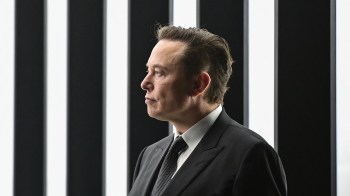I’ve seen a lot of mention in the coverage of the bin Laden killing about how this was Twitter’s CNN moment, referring to the first Gulf War when CNN and people like Bernard Shaw suddenly became vital beacons of information.
Here’s an article to that effect. I think that’s a take we’ll be hearing more in the next couple of days. But I think that’s bunk.
You heard me: BUNK! Bunk I say!
Back in 1991, CNN had news gathering operations in place, journalists and editors on staff, trucks, equipment. Twitter doesn’t have that. Twitter is not a news gathering organization. Twitter has no fact checkers. Twitter is a platform. If anything, it’s not CNN, it’s cable television itself but with everyone getting their own tiny channel on the dial and you can watch that channel at the same time as any other channel you choose to watch. So in other words, nothing like cable whatsoever.
I follow a lot of journalists on Twitter and, yes, I heard about OBL’s death before it was being reported on TV and well before the president spoke. But I also heard things like the attack happened three weeks ago, he was killed by a drone aircraft, and other stuff that turned out to be false. So yes, Twitter had a form of the scoop early but I don’t think it was anywhere near as significant in this case as it has been in cases that are ongoing like the revolution in Egypt or the continuing rebellion in Libya.
In those cases, new developments often occurred in the public square and could be updated with some degree of reliability in real time. Twitter was the first place you’d hear about something and you could watch it unfold. There were no tweets as the raid occurred, aside from @ReallyVirtual‘s and he didn’t really know what was going on.
I think the real coverage of the event is Wikipedia. I was up early reading New York Times accounts and Washington Post accounts and other papers, often wading through a bunch of back story on bin Laden that I really didn’t need. Afterward, I had 5 minutes before I had to leave to catch my bus and my wife asked me, “So what do we know for sure about what happened?” My knowledge was pieced together and I told her things that I’ve since realized aren’t accurate. Once on the bus, I read the Wikipedia page about the attack and it was comprehensive. Wikipedia gets slammed sometimes for being unreliable and a place where any yahoo can alter reality to anything they like. The page about the attack is extensive, well sourced, and incredibly informative. Even if Twitter had its moment as an information disperser, we’ll all lean on Wikipedia more in the future. In high profile cases like this, these pages are being extensively edited and also extensively policed. Good stuff. You should read it.
There’s a lot happening in the world. Through it all, Marketplace is here for you.
You rely on Marketplace to break down the world’s events and tell you how it affects you in a fact-based, approachable way. We rely on your financial support to keep making that possible.
Your donation today powers the independent journalism that you rely on. For just $5/month, you can help sustain Marketplace so we can keep reporting on the things that matter to you.


















